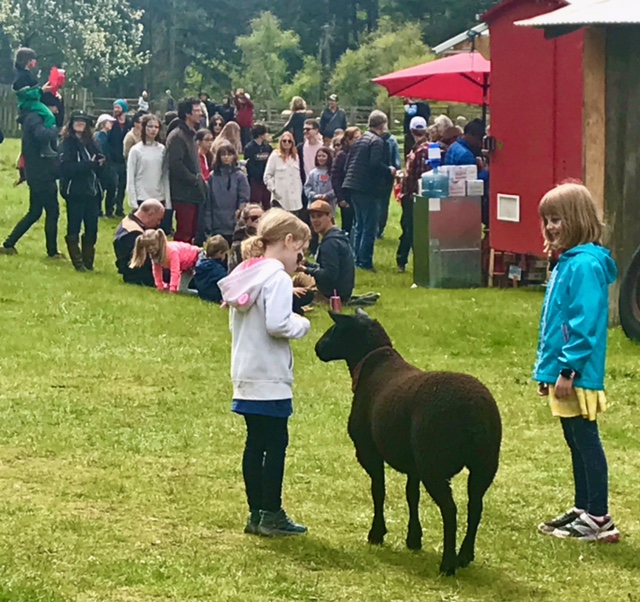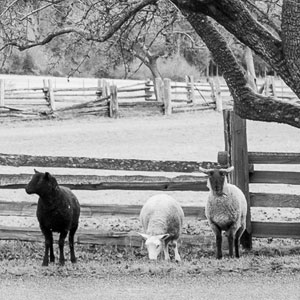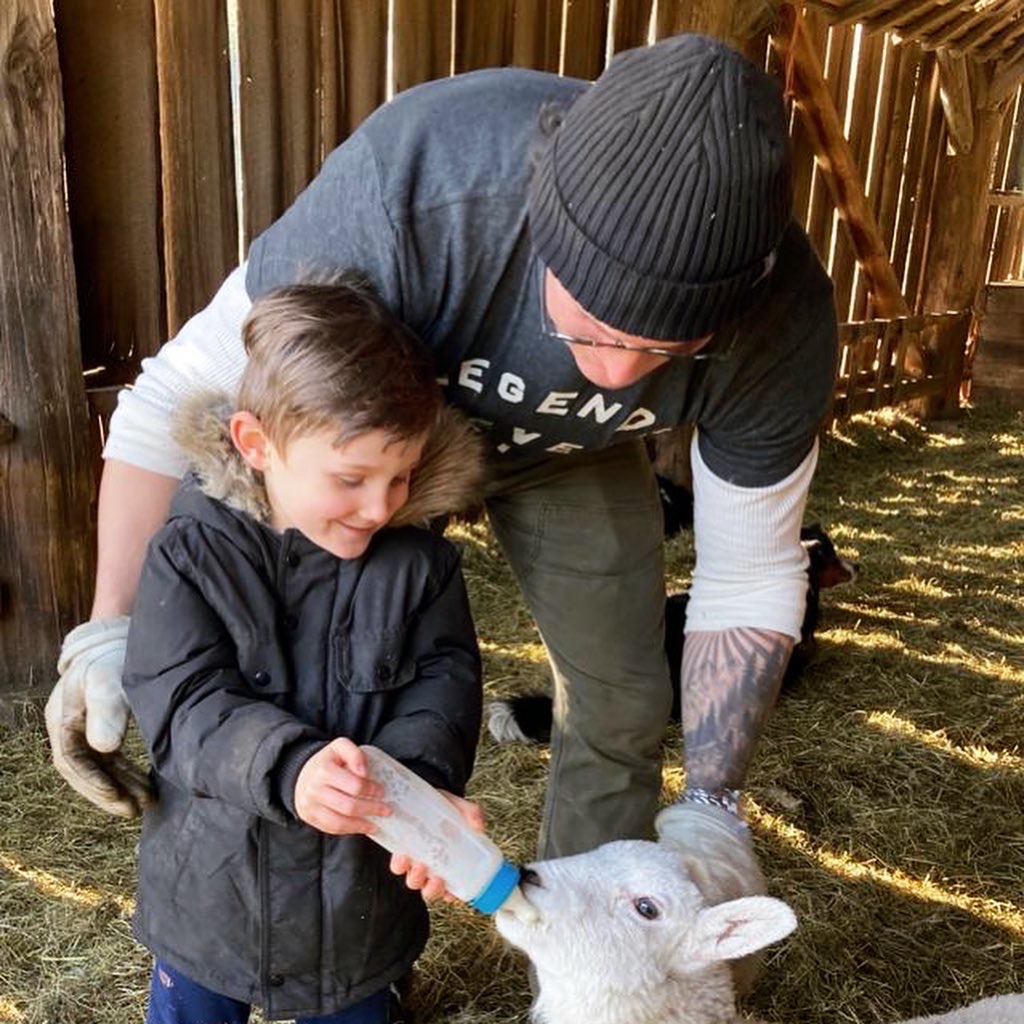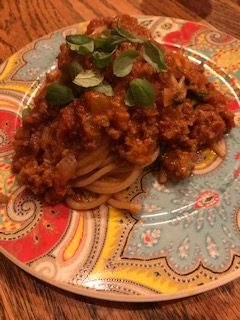Why I Passionately Believe in Raising Animals the Right Way
By Abey Scaglione of Ruckle Heritage Farm
Brian, one of this year’s bottle-fed lambs, died today. It’s definitely my saddest goodbye on the farm so far. I’ve often said that farming is not for the faint of heart. Farming is challenging for a variety of reasons but saying goodbye to animals you love, both from natural causes and because it’s time for them to go to the abattoir, is heartbreaking. But just because it’s sad, doesn’t mean it’s wrong.
I really loved Brian. We saved his life when he was rejected by his mother at birth. Some farmers are not so soft-hearted and don’t keep bottle-fed lambs as it costs more to feed them than one is likely to get back for the animal at processing. But we keep bottle-fed lambs so that they have a chance at a good life on the farm and then when it’s their time they are given a quick, humane death, just like all the animals we raise. While it isn’t a long life by our human standards, it is better than what most of nature has to offer.
Approximately eighty percent of the lambs born this year will die and according to The Department of Fish and Wildlife, approximately sixty-five to eighty-five percent of the deer born in this area of British Columbia die in a given year as well. However, the lambs are given food, shelter and medical attention when they are sick. They are given a quick death. The young deer are offered none of these things and often slowly starve to death. Nature is not always kind.
As humans we’re caught up with a need for longevity and a need for relationships to last but as Diana Rodgers, author of Sacred Cow, says,“…the idea that a natural death is a painless death or a better death than a humane slaughter that we can do with all the technology that we have today is crazy.” Nature can be incredibly cruel so let’s not romanticize it and be realistic in asking ourselves, who is it that is going to keep and feed these animals just as pets? No one is going to keep a flock of sheep, costing thousands of dollars to feed and countless hours to care for, just because they’re cute. Sure, there are farm animal sanctuaries but these are the exception. So is it better to give these animals a short but wonderful life or for them to never exist in the first place?
Another interesting thing to consider is that plant crops aren’t free from death either. Animals die, like bunnies and mice, killed when those crops are being cultivated by huge machinery, not to mention the life forms affected by the pesticides often used and the environmental toxins caused by transporting that food. John Chester, whose farm inspired millions in the Netflix documentary The Biggest Little Farm, is quoted as saying, “For me to grow 214 acres of stone fruit and avocados on this farm requires me to kill at least 35-40,000 gophers a year.”
I believe humans need animal protein and nutrients to survive and thrive. I find it telling that there are no known traditional vegan cultures. While a vegan diet might be good for awhile, the nutritional deficiencies will catch up with you. I agree with Jayne Buxton, author of The Great Plant-Based Con: Why Eating a Plants-Only Diet Won’t Improve Your Health or Save the Planet, that we’re being inaccurately brainwashed to think a vegan diet is healthy. How can a lab-made Impossible Burger with its slew of ingredients- including soy protein isolate, glutamates and yeast extract- possibly be healthier than grass-fed beef? I also don’t believe it’s realistic to expect we can convince the entire planet to go vegan even if it were a healthier alternative.
No one would argue that factory farming is good for the environment but other farming practices are. While cows do produce methane, they also do something called carbon sequestration which, when combined with soil microbes, mean pastured cows are actually having a positive effect on greenhouse gases. Also, a lot of pasture land is unsuitable for growing vegetables and using this land for pasture actually improves the quality of the land and keeps it from becoming unusable in the future. It is the biodiversity created by growing plants and raising animals together that creates sustainable food sources.
Some argue against eating meat with the misleading claim that raising animals utilizes extreme amounts of water; however, animals raised out to pasture actually give us access to water that we wouldn’t otherwise have access to. Here at Ruckle Heritage Farm, we wouldn’t have access to the water coming through this valley every year if it weren’t for the livestock eating the plants and drinking from the ponds and puddles, then essentially irrigating and fertilizing the soil with their urine and feces. The water leaves the valley every year with the sun and the wind, and returns with the rain and the snow each winter. The only way we have access to this water is through livestock, whereas vegetable crops require irrigation. As Mike Lane, who has been farming Ruckle Heritage Farm for over thirty years, says, “We can’t eat grass, but the sheep can.”
It’s true that animals raised for food are often mistreated and it is horrific- that’s why I vowed a long time ago to make conscious choices about where my food comes from. It’s not fair to lump a family farm like Ruckle Heritage Farm in with those raising animals in confined, cruel conditions. As Diana Rodgers points out, not eating meat because you don’t believe in factory farming is “…..like saying ‘I won’t eat vegetables because I don’t believe in the mono crop GMOs.'” Rather than rejecting all meat, we need to collectively focus on the importance of how animals are treated, raised and slaughtered.
Not every animal we raise ends up sent to the abattoir. Suzie, our twenty year old Highland cow isn’t able to get pregnant and the last calf she did have died soon after birth. We could send her to the abattoir and get a lot of meat in return but Mike Lane felt that after all these years of knowing her, he just couldn’t do it. She’s ultimately a (very expensive) pet at this point, as well as a wonderful farm attraction. It’s normal to get attached to the bottle-fed lambs in particular and most of the females remain on the farm to have more lambs, but unfortunately keeping a bottle-fed male isn’t an option.
Brian’s fate was sealed the day he was born. Mike Lane says that a bottle-fed male lamb grows up to be the most dangerous animal you can have on a farm. Unlike other sheep, bottle-fed lambs have no fear of people and it’s natural for the males to want to ascertain their spot in the flock hierarchy and therefore when someone new comes along, or someone little, like my sons, they can become very aggressive. My friend tells a story of her mom being chased by a grown-up bottle-fed ram that actually broke down their kitchen door at the tail end of this chase! Mike was once knocked down by a ram, displacing his spine by 1.2 cm. An injury he lives with to this day. Farm animals can be dangerous, with bottle-fed rams at the top of the list. I admit to having some hopes that Brian would be somehow different but then he knocked my two year old son to the ground on two separate occasions. I loved Brian but he couldn’t stay.
Is it cruel to kill an animal for food that you say you love? Some think so but isn’t it better to love them while you can? We’d laugh at Brian’s silly antics, like playing with the cat and nibbling my hair while I milked the cow, as well as his cute, recognizable bleating that was at times so insistent that someone once called the house saying “There’s a lamb that is very upset and won’t stop baa-ing. Maybe he’s lost?” Nope, that’s just Brian looking for his next bottle.
Please don’t make the mistake of believing that those who responsibly raise animals for food don’t still love them dearly. We care for all our animals day in and day out. I miss Brian but I’m happy for the time we had together and I’m proud that we saved him and offered him a good life. Some relationships don’t last forever. Even though I passionately believe in what we do, it’s still sad to say goodbye. But again, just because it’s sad, doesn’t mean it’s wrong. Life is complicated like that sometimes.




